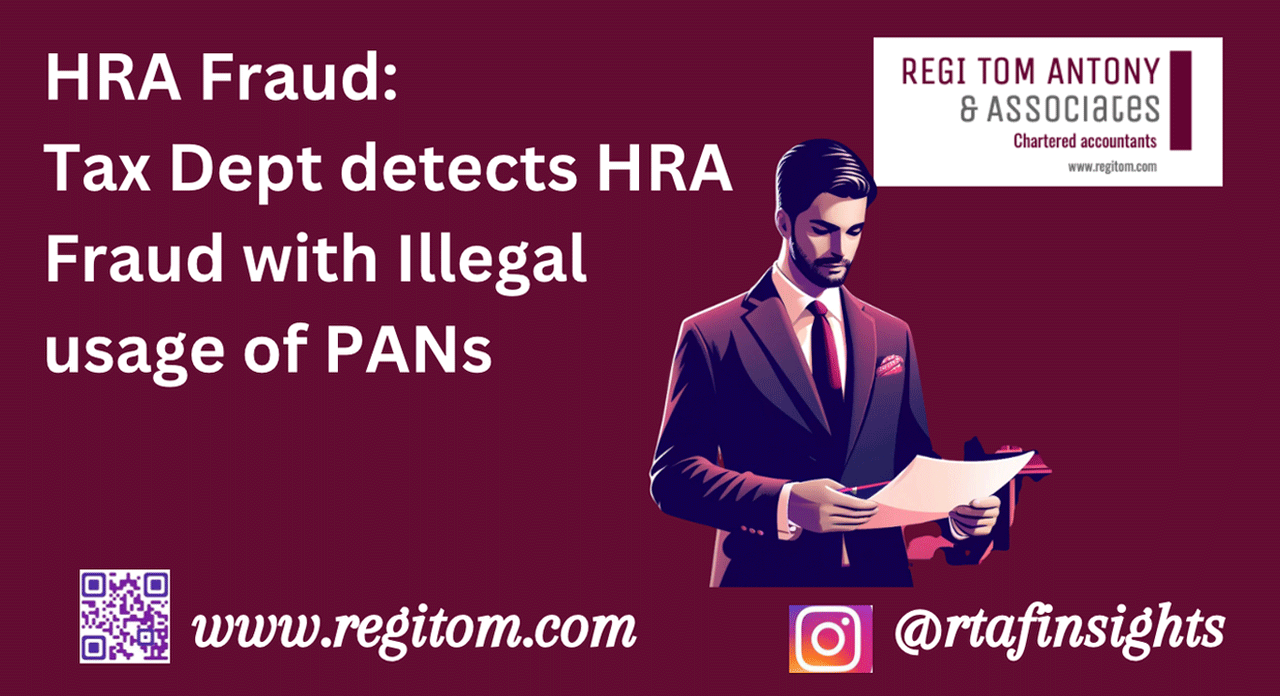
In light of the recent uncovering of HRA fraud by the Income Tax Department, it's essential to dissect how such deceptive practices were orchestrated and the imperative role of due diligence.
Breakdown of the Fraudulent Scheme
The case that has come to light reveals that individuals exploited PAN cards to claim HRA by generating counterfeit rent receipts of significant amounts. In one instance, an individual alleged rent receipts of approximately ₹1 crore. However, upon scrutiny, the individual could not substantiate the rental income, and further investigation exposed that the PAN reflected no actual rent payment.
Moreover, the scrutiny revealed a systematic abuse of PAN details by unscrupulous individuals, wherein they submitted bogus claims to evade tax legitimately due on their HRA. In some cases, employees of certain corporations were found to be complicit in using the same PAN to fabricate HRA claims, deceiving the system to benefit from tax deductions unlawfully.
The Operational Tactics
The fraud was facilitated in part by the collusion between employees and employers. Faulty and deceptive claims were submitted for HRA deduction, which were seemingly overlooked or intentionally disregarded by the employers during the TDS process. Even when multiple individuals used a single PAN for HRA claims, the ruse went undetected for some time.
The Consequential Discoveries
The Income Tax Department's efforts unveiled a widespread pattern of manipulation and deceit involving several cases where tax deductions were claimed fraudulently. It was noted that TDS statements did not accurately reflect the financial transactions that they purported to represent, thus allowing the fraud to persist undetected for some time.
Preventive Measures
Companies must establish stringent internal control systems to prevent such occurrences. Regular audits, verification of claims through independent checks, and employee education about tax rules and ethical practices are critical.
Implications for Businesses and Professionals
This case scenario amplifies the need for businesses to rigorously audit their internal processes and for Chartered Accountants to meticulously verify the legitimacy of HRA claims. Firms must be vigilant in their oversight of tax deductions and ensure that their TDS filings are an accurate portrayal of actual transactions.
Call to Action
The role of Chartered Accountants is pivotal in preventing such transgressions. It is their duty to foster an environment where ethical practices are not merely encouraged but are an operational mandate. They should counsel their clients to maintain a transparent record of transactions and warn them about the severe legal consequences of malpractice.
 5 May 2024
5 May 2024